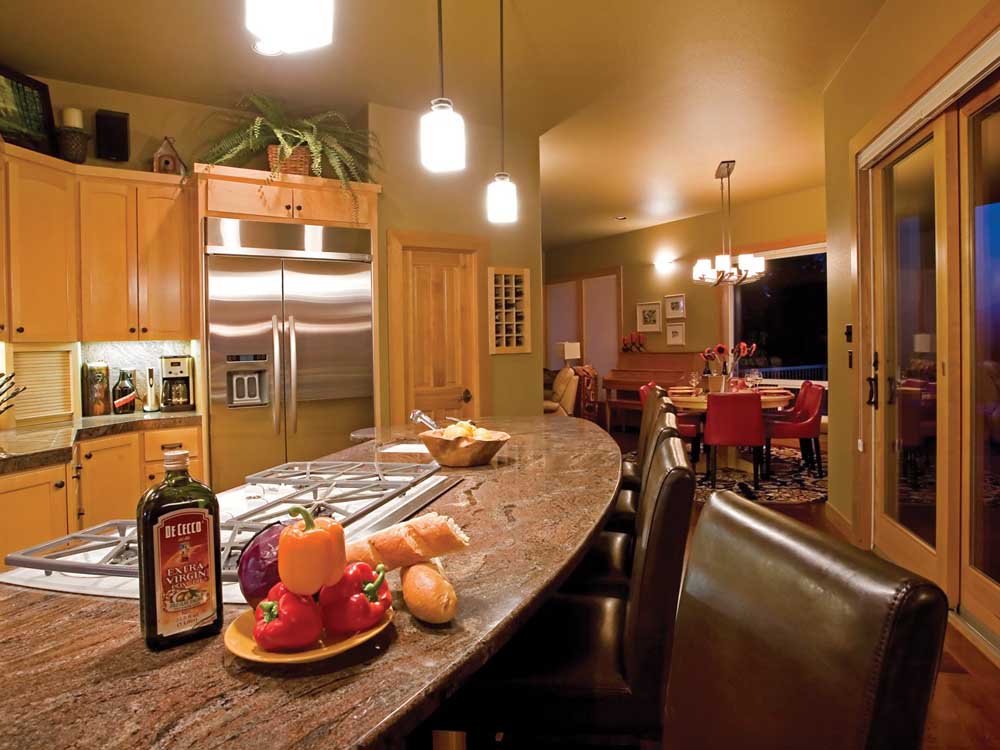Sponsored Content
Top 10 remodeling questions
Published 3:10 pm Tuesday, July 2, 2019

- Photo courtesy of Chi/Complements Home Interiors.
10. How long will it take?
Without knowing what is inside your walls (read more about this in #1), there is no way to know exactly how long a remodel will take. However, the average kitchen or bathroom remodel, with new cabinets, will take four to seven weeks. This doesn’t include architectural drawings, interior design, permits, ARC (architectural review committee) permission or the lead time on materials, fixtures or supplies.
Things that can delay a remodel: weather, custom-made items with long lead times, permitting, home owner’s association approval.
9. Do I have to move out?
It depends on how uncomfortable you are with being uncomfortable. I once lived through an eight-week kitchen remodel where I had to wash my dishes in the basement laundry sink and cook every meal in the microwave. A hotel is a good, but expensive, option. You might also consider: living in an RV/travel trailer in your driveway, renting a home or living with the in-laws. If you choose the RV solution, make sure your HOA will allow this for extended periods.
8. Do I need to empty out my cabinets?
There will be dust so absolutely clear out your cabinets in any room close to the remodeling action. If you leave the clearing to your contractor, s/he will charge you for their time. It’s not a bad idea to clear clothes out of a nearby closet too. Consider it an opportunity to get rid of things that are out of date!
7. Where will I stage materials?
It’s important to be able to secure and store remodel-related materials in a dry spot where snow or rain won’t damage them. In your garage? At the back of your house? If you choose an outdoor spot, run it by your HOA and make sure deliveries of lumber, sheetrock, etc. won’t tear up your landscaping (unless you’re redoing your landscaping, of course!).
6. Where will everyone go to the bathroom?
At first it seems like it won’t bother you to have multiple workers in and out of your powder room. As the remodel progresses, it will bother you more. Construction workers, even the best of them, may get sloppy at times. If this sounds unbearable, insist that your contractor rent a porta-potty and figure it’s $100 to 150 per month well spent.
5. Will this affect my neighbors?
There will be trucks coming and going daily, possibly a dumpster left for a period of time, pallets, building materials and trash. To minimize disruption, make sure your contractor has the dumpster picked up regularly and request, in the interest of good neighbor relations, that they keep at least the front yard picked up.
4. The noise…will it ever stop?
Most likely, there’ll be demolition involved before the reconstruction. Expect noise — lots and lots of hammering, saws, drills, and that doesn’t even take into account the music the subcontractors will be listening to. Make sure you have a refuge from the noise. It can be that travel trailer in the driveway, or the library, a coffee shop or a friend’s house. But make sure to have plans for quiet in your life during this noisy time.
3. How do we communicate?
Whether you are adding a room or remodeling a kitchen, you’ll have many questions for your contractor/designer, and, likewise, they will have many questions for you. Early on, establish the best way to get a hold of each other, because you will need to be accessible to make decisions in a timely way during the process. The contractor and/or designer cannot read your mind, but they want to make sure you’re happy. Have specific check-in times daily or weekly for the people key to the remodel. Use this time to go over questions, problems and progress.
2. What time does it start?
You can expect your contractor and the sub-contractors to arrive anytime from 7 to 8 a.m. If you are a night owl and don’t get up before 10 a.m., see #10 and consider moving out for the duration of the remodel.
1. What about additional charges?
Most contractors will do their best to stay within the estimate given. That said, it’s hard for her/him to know what is going on behind those walls until they’re opened up. Unforeseen electrical, plumbing, structural or rot issues, or changes you make to design along the way will be your responsibility. To keep you abreast of costs, the contractor should give you change-orders along the way to agree to and sign, so that you are aware of any and all up-charges.
Remember, most contractors, designers and subcontractors are people-pleasers. They want you to be happy. Help your contractor by making decisions and progress-payments in a timely fashion and keep the lines of communication open. Four to seven weeks can actually go pretty fast!








